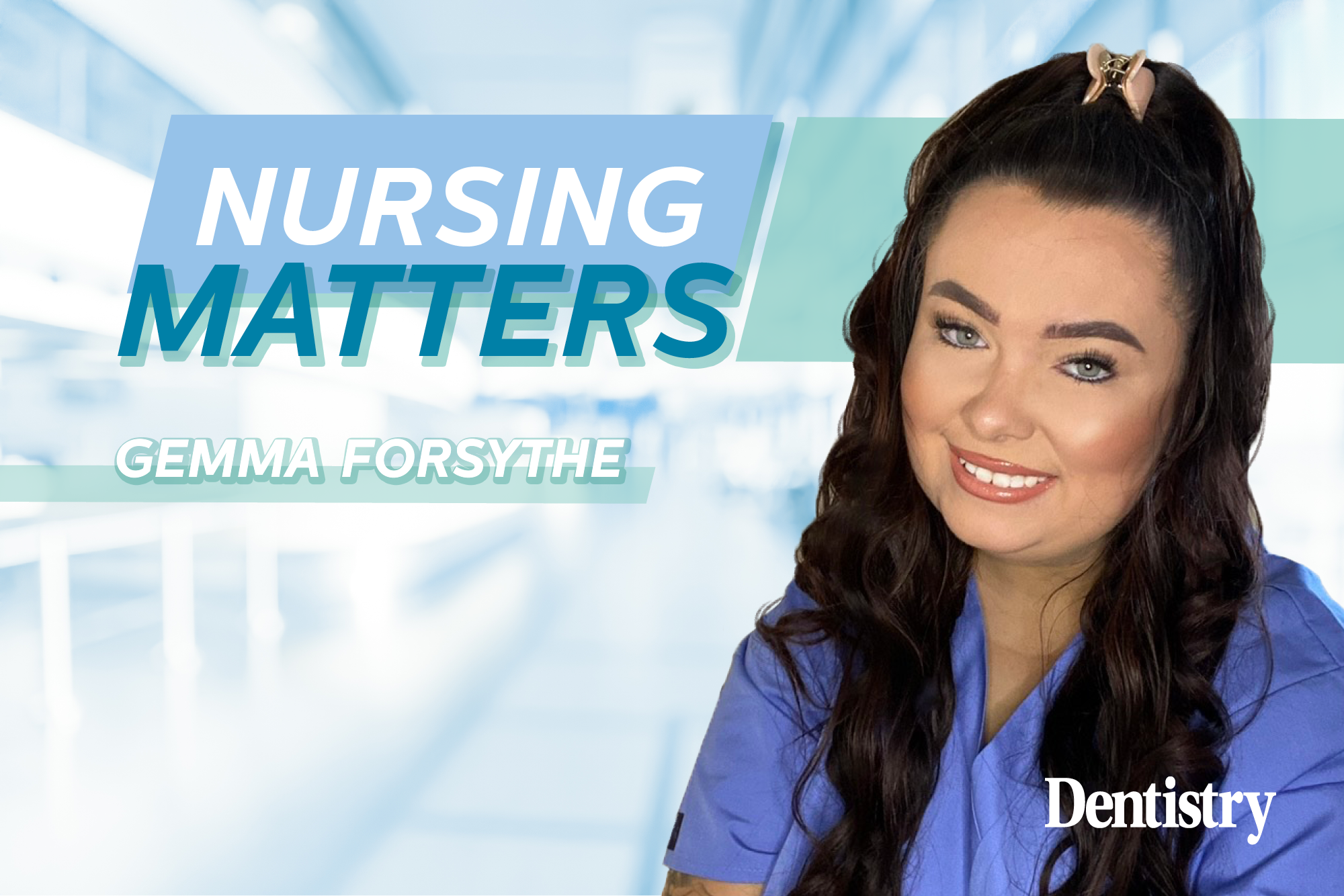
In light of Alzheimer’s Awareness Month, Gemma Forysthe shares how to support patients living with Alzheimer’s and everything you need to consider ahead of their appointment.
As September is Alzheimer’s Awareness Month, this month’s Nursing Matters column will be focused on how we can best support our patients that have Alzheimer’s and other dementias.
One in three of us born in the UK today will go onto develop dementia in our lifetime. By 2025, there will be one million people living with dementia.
In the early stages of Alzheimer’s, dental care should focus on prevention.
Getting check-ups, cleaning and flossing teeth regularly can prevent the need for extensive procedures later on, when the patient may be less able to tolerate them.
How can you support patients with Alzheimer’s?
When making an appointment
- Carefully consider how appointments are booked and how any alterations to appointments will be communicated
- Bear in mind if there is anyone who will need to be informed of the appointment, such as family members or carers
- Phone call or text message reminders may not be suitable for Alzheimer’s patients. Therefore, alternative methods will need to be considered, for example sending appointment reminders to a family member
- When offering patient appointments, ensure the appointment is booked for a suitable time of the day – when both the patient and carer can attend the practice. As well as this, it is best to choose an appointment time that will allow for extra time if necessary
- Keeping these patients with the same clinician would be best – this allows the clinician to build rapport and trust with the patient.
At the appointment
- Greet the patient like you would any other patient. This allows you to assess hearing, understanding and communication. Be welcoming, calm and friendly
- Accompany the patient from the waiting room into the surgery and vice versa – especially if your practice has long corridors with lots of identical doors, as this can be confusing for patients’ with Alzheimer’s
- Keep language simple and to the point. Try to speak in short sentences to aid understanding
- Give a written treatment plan to the patient to take home. Also, at following treatment appointments, always remind the patient what treatment they are having done
- Above all, treat these patients kindly and with respect.
Oral health advice
During the middle and late stages of Alzheimer’s, oral health may become more challenging.
The person may forget what to do with toothpaste or how to rinse. They may also be resistant to assistance from others.
In the middle to late stages of Alzheimer’s, we may need to involve care givers in dental appointments and give advice on oral care to them as opposed to the patient directly. This is because they may not understand it.
It would also be useful to also give the carer a copy of these instruction to refer back to.
Useful advice we can give to care givers
- Provide short instructions – break down dental care into steps. Instead of ‘brush your teeth’, talk the patient through the process. Your could say, ‘hold your toothbrush in your hand, put toothpaste on the brush, then brush your teeth’
- Use a mirroring technique – hold a toothbrush and show the patient how to brush their teeth. Alternatively, you could place your hand over the patient’s hand and guide the brush in circular motions
- Try to keep the mouth as clean as you can – ensure the patient is having their teeth brushed at least twice a day. Bedtime is the most important time to brush. You should also ensure this is done after taking any night time medicines
- Take your time – allow plenty of time for this activity, especially if you have to do the brushing for the patient. Find a position that the patient is comfortable in. Also, keep the toothbrush at a 45 degree angle, making circular motions to clean the teeth and gums
- If the patient wears dentures – ensure they are kept in a box with the patient’s name on them (soaked in a cleanser). This is so they do not get lost when they are removed (they should be removed at night time). In addition, rinse the dentures with plain water after meals to remove any debris. Dentures can be brushed using a toothbrush and mild soap with water as toothpaste can be very abrasive and can take the shine off dentures. Ensure they are rinsed well before inserting them back into the patient’s mouth.
I would like to finish this month’s edition of Nursing Matters with a quote I really love relating to Alzheimer’s: ‘They may not remember your name, but they will remember how you made them feel.’
Catch up with previous Nursing Matters:
- The importance of oral health conversations with children
- Utilising your personal development plan (PDP)
- How we can all promote LGBTQ+ inclusivity
- Placing the focus on mental health
- Top tips for job interviews.
Follow Dentistry.co.uk on Instagram to keep up with all the latest dental news and trends.


